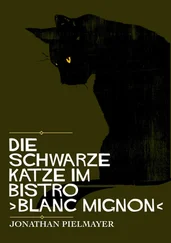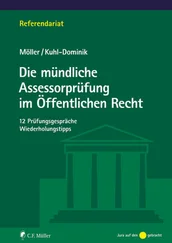“Okay, Ms Wheelwright,” he said. “If you’ll lie down on the table, please.”
Molly saw where her feet were intended to go. The doctor sat on a small stool between her knees. At his feet was a small metal garbage can with a lid.
“Just to double-check, Ms Wheelwright, you’re here for a D and C, is that right?”
“Yes.”
“Your last period was when?”
“About nine weeks ago.”
“And you’ve declined an offer of counseling on the alternatives to abortion, is that right?”
“That’s right.”
“Okay then.” He signed something on the clipboard and handed it to the nurse, who placed it on the metal table behind her. She handed him a pair of rubber gloves.
It took about twenty minutes. The nurse had no duties to perform; it dawned on Molly that she was there because she was a woman, simply to bridge the gap in some mysterious way between Molly and the man who squinted as he scraped the inside of her uterus with what looked like some sort of sewing tool. The silence was broken only a few times by his saying, “Now you’ll feel a dull ache,” or “Now you may feel a sensation like cramping.” He was never wrong about it. Molly wasn’t aware of any particular look on her own face, but at one point, without warning, about halfway through the procedure, the nurse reached out and took her hand.
Jesus, thought Molly, struggling not to lose it; what a terrible idea. Let go of me.
She could hear the opening and closing of the garbage-can lid. “Garbage can” must not be the right term, she thought; but that’s what the opening and closing sounded like.
She had no idea how long such a thing should take, five minutes, an hour, so she was surprised when she heard the snapping sound as he removed his gloves. “And we’re through,” he said, not unkindly. Molly propped herself up on her elbows. “If you have any questions, Renee here can answer them, but if you need to talk to me for any reason, of course I’ll still be around.”
Renee took Molly’s elbow as they walked the few feet back to the changing room. “Now you may feel some cramping-type pain in the next few days,” Renee said intimately. “That’s normal. A little bleeding is also nothing to worry about. If you get a heavier flow, call us here, or go straight to the emergency room if you feel it’s necessary. Use a pad for the bleeding — no tampons. You may want to take it easy today and tomorrow.”
At the door, Renee handed Molly a piece of paper. “This is a prescription for some Tylenol with codeine. I’d advise you to fill it on the way home. With most people, especially as young as you, the pain isn’t that severe. But sometimes it is. Now,” she said as she closed the door, “you just take as long as you need to in here, to collect yourself. Nobody’s going to hurry you.” She closed the door.
Collect myself? Molly looked around the tiny room for a minute, having numbed herself to such a degree that it was difficult to think at all. She dressed quickly and left. The exit did not take her back through the waiting room; she pulled open a fire door and was back in the bright sunshine of the parking lot.
On the long drive back to Ulster the pain commenced. Soon Molly’s fingers were white around the steering wheel. No bleeding, though, which was important, since this was her mother’s car. She fished the prescription out of her pocket. Without slowing down, she crumpled it up, rolled down the window, and threw it into the weeds along the highway.
“There you are,” Kay said absently when she heard the door open. “I didn’t know where you’d gone.”
“Visiting friends.”
“Oh, lovely. I saved you some lunch.”
“No thank you,” Molly said, not breaking stride. “I’m not feeling that well.”
“What’s the problem?”
“Cramps,” Molly called from the stairs.
“Poor thing,” Kay murmured. Molly went into her room and shut the door.
She lay on her side, facing the wall. Each wave of pain squeezed the tears from her eyes; they rolled sideways across the bridge of her nose and on to the pillowcase. Good, she said to herself. Good. It should hurt. She did not have to think of John, or of their aborted child, in order to feel that where she was right now was where she deserved to be. She wanted, but couldn’t quite bring herself, to wish it would last longer than just one day.
IF JOHN WAS unsure at first what his duties might be as Osbourne’s adjutant he didn’t have the luxury of wondering for long. The new business that poured their way after the mirror ad necessitated expanding the staff; Osbourne insisted on no more than three new employees (though they could have used and afforded twice that number), and he left John in charge of the hiring. They didn’t have to recruit — the office was besieged by job applications, by phone, by mail, by Internet, at the very door of the mansion — but John, eager to impress, recruited anyway. In the end he hired a graphic novelist from Cleveland, a faculty member from the American studies department at Yale, and a video-installation artist whose work he read about and subsequently traveled to see — with Osbourne’s blessing — at the Biennale in Venice. He kept raising the stakes for himself, wondering when he would contact someone who would refuse to consider his offer. But no one ever did.
John also ran all the client meetings now, which was sometimes a touchy business — in spite of the agency’s escalating fame — only because Osbourne had decreed that they were not to take part in any pitches. If a client wanted them, then the client could hire them, but Palladio would not expend its creative energies in these demeaning closed-door competitions. This rubbed a great many executives the wrong way, and John — flying around the country, usually working alone — needed all of his unthreatening charisma to convince these executives that, considering the agency’s brief but unblemished record, they really weren’t taking any undue risks; and that Osbourne’s refusal to pitch their account was not a slap directed against them, but a measure of the lengths he would go to in order to insulate the best creative staff in the world.
That staff was indeed working at peak inspiration. They had internalized Osbourne’s message, which was that only the art mattered, that clients and their interests were an aesthetic crutch which was hereafter kicked out from under them, that the world of commerce would subsidize them endlessly in return for a portion of the reflected glory of the work they happened to do within the walls of the mansion. The more personal, the better. They were dependent on no one; and John, free of the stress now of competing with them, was able to take pride in the greatness of the work they were producing.
Inevitably, as Osbourne’s name — despite his efforts to stay out of the spotlight, to credit only his employees — grew more and more revered, offers began to materialize for him to write a book. John flew to New York to negotiate on his boss’s behalf. Private cars took him everywhere, from the hotel to the publishers’ offices, from the offices to the restaurants, yet he was still surprised to find himself a little keyed up at the prospect of running into someone he knew in the city — from his days at Canning & Leigh, or possibly even Rebecca herself, who still worked in midtown, as far as he knew. In his daydreams about it he concentrated mostly on how not to appear condescending, in light of the success none of them had predicted. But in the end, he saw no one but strangers and new acquaintances, and he flew home to Virginia with no such experience useful for measuring his old life against his new one, only a contract for his boss to sign, for 1.1 million dollars.
Though it was late when he got back to Charlottesville, he drove straight to the office. Osbourne would certainly be there, and might even be awake, since he kept strange hours; but John would wait to see him first thing in the morning. He went to his own bedroom — the one now generally recognized as his — in the west wing, and he opened the door. The bedside light was on; but Elaine, though she had tried to stay awake, was sleeping on her side, one knee drawn up, under the sheet. John smiled; he undressed, turned off the light, and, sliding in as noiselessly as he could, moved his fingers lightly across the solid curve of her hip, to see how far he could get without waking her. It was a game they had.
Читать дальше












